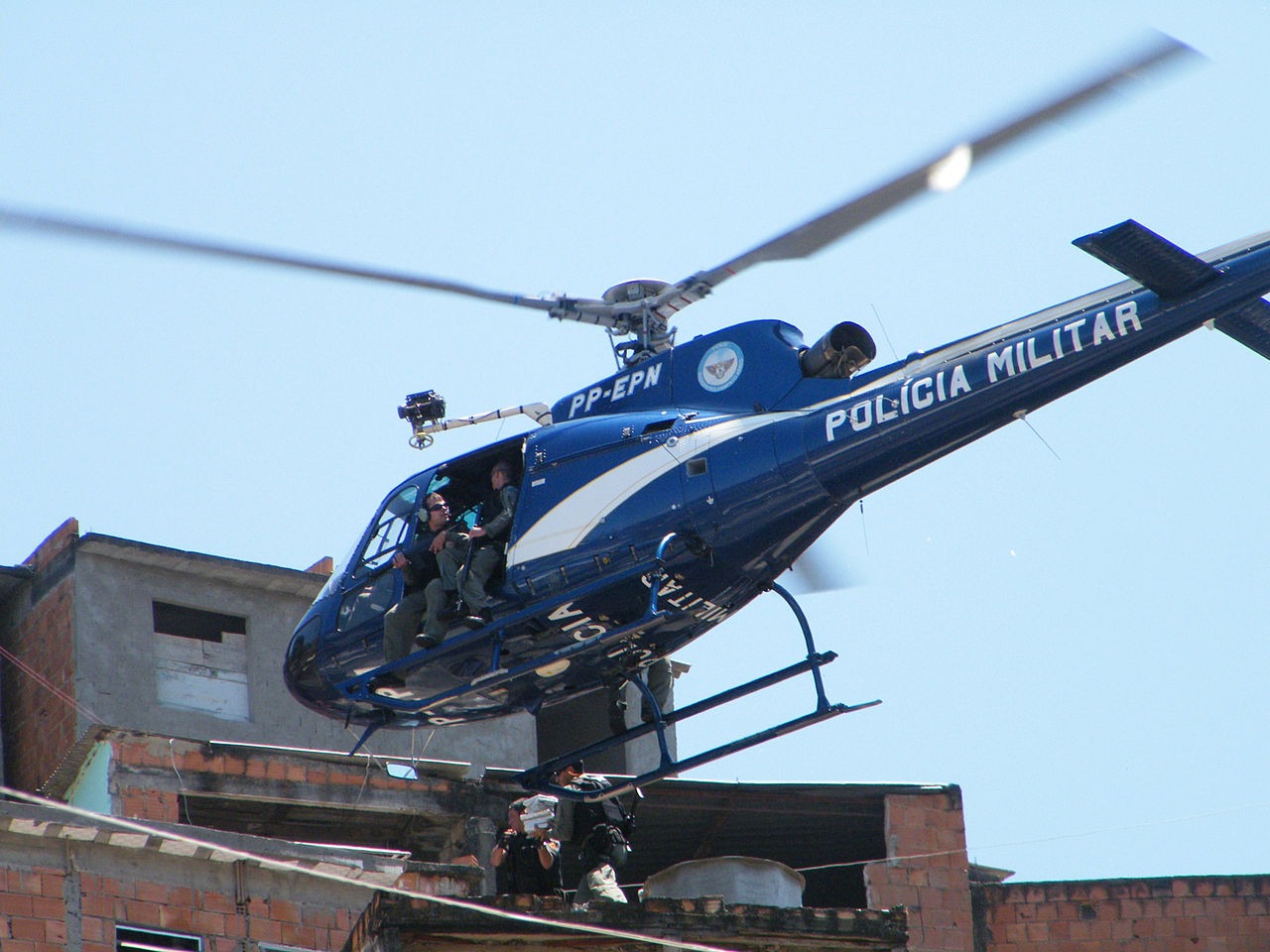Why the Supreme Court suspend police operations in favelas of Rio de Janeiro
NGOs, social groups and movements engaged with favelas and the mothers of victims take legal action against the state of Rio de Janeiro over its security policy
 Rio de Janeiro Military Police helicopter hovers over the Alemão favela complex in an
operation carried out in 2010 (Vladimir Platonov/ABr)
Rio de Janeiro Military Police helicopter hovers over the Alemão favela complex in an
operation carried out in 2010 (Vladimir Platonov/ABr)
Responding to a request from civil society and social movements, Supreme Court Justice Edson Fachin granted on June 5 an injunction – temporary decision – banning police operations in communities of Rio de Janeiro for the duration of the Covid-19 pandemic.
In his decision, Fachin determined that “under penalty of civil and criminal liability, police operations shall not be conducted during the Covid-19 epidemic, except in absolutely exceptional cases that must be properly justified in writing by the competent authority and notified immediately to the Public Prosecutor’s Office of the state of Rio de Janeiro”.
The justice also determined that, in the extraordinary cases in which these operations are conducted, the police must adopt exceptional precautions, duly identified in writing by the competent authority, to avoid putting the population, the public health services and the humanitarian aid activities at even more risk.
Read more
ADPF Favelas Case
For the first time, NGOs, social groups and movements engaged with favelas and the mothers of victims of police operations have taken legal action against the state of Rio de Janeiro over its security policy. The ADPF (Allegation of Violation of a Fundamental Precept) Case No. 635, known as the “ADPF Favelas Case”, is a lawsuit proposed by the Brazilian Socialist Party (PSB) and jointly drafted by the Public Defender’s Office of the State of Rio de Janeiro and the organizations Educafro, Justiça Global, Redes da Maré, Conectas Direitos Humanos, Movimento Negro Unificado, Iser, IDMJR, Coletivo Papo Reto, Coletivo Fala Akari, Rede de Comunidades and Movimento contra a Violência, Mães de Manguinhos.
The case calls for the gross violations caused by the public security policy of the state of Rio de Janeiro to be recognized and remedied.
The judgement began on April 17, when the rapporteur, Justice Edson Fachin, gave his vote on some of the precautionary measures that had been requested. In his vote, the justice granted some important requests:
- Preservation of the crime scene;
- Improving the work of the forensic bodies;
- Recognition of the exceptional nature of police raids in areas near schools, day care centers, health clinics and hospitals;
- Restrictions on firing guns from helicopters in police operations;
- Refining the work of the Rio de Janeiro state Public Prosecutor’s Office.
Following Justice Fachin’s vote in April, the session was suspended after Justice Alexandre de Moraes requested an adjournment. The judgement is scheduled to resume on August 7.
A new precautionary decision
In late May, however, a coalition of organizations filed a petition addressed to the rapporteur requesting the suspension of police actions in Rio de Janeiro during the Covid-19 pandemic. The organizations asked the Supreme Court to order the cancellation of all police operations in favelas during the Covid-19 epidemic, except in absolutely exceptional cases that are properly justified in writing by the competent authority and notified immediately to the Public Prosecutor’s Office.
Since Justice Fachin has granted the injunction, the Supreme Court will now convene to judge his decision. The virtual judgement allows the justices to publish their votes until August 4.
Action to save lives
The judgement and the pressure from society against the police operations are occurring at a time when the country has witnessed a series of violent actions by the Military Police, including one that resulted in the death of 14-year-old João Pedro Mattos in São Gonçalo, in the metropolitan region of Rio de Janeiro. According to data from the Security Observatories Network, the number of police operations grew in the state of Rio de Janeiro starting in April and now surpasses the figure from 2019, with an increase of 27.9%.
The number of killings by the police also increased: despite a decline in the early days of the epidemic, in April 2020, there was a sharp increase of 57.9% in April and of 16.7% until May 19, compared to the same period last year. The data also indicate that the police in Rio de Janeiro have used more lethal force during the pandemic than in the equivalent months of 2019, when the state had a record of 1,810 deaths caused by police intervention.
According to a study conducted by researchers from the Fluminense Federal University, the suspension of police operations in the favelas could save more than 400 lives in one year.
“In a context in which anti-racism protests have broken out around the world, it is urgent that Brazilian institutions put an end to the genocide and the violation of the rights of black people from the favelas and urban outskirts,” said Gabriel Sampaio, coordinator of the program to Combat Institutional Violence at Conectas. “Decisions like this are very important because they save lives,” he added.
- Read the injunction from Fachin in full
- Follow the passage of ADPF 635 in the Supreme Court
- Read the amicus curiae presented by Conectas and Redes da Maré






